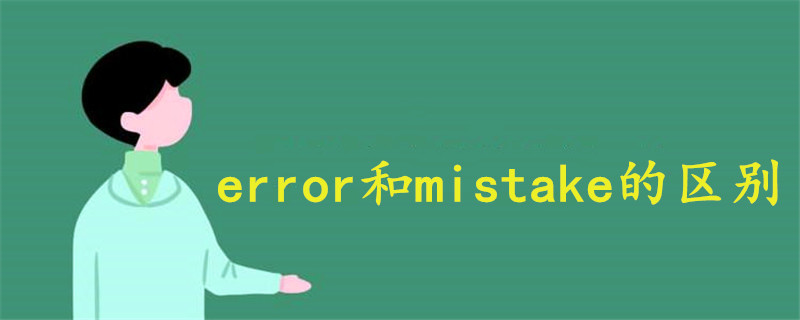error和mistake的区别:含义及用法不同。error通常指当一个选定的行为与相关标准进行比较时出现的错误,也指道德上的过失,是一个较为正式的词;mistake主要是指所做出的决定后来被证明是错误的,意为误会、误解、看错。

一、error的中文含义及用法介绍
error作为名词,含义为错误;差错;谬误。它是指比较严重的错误,有时也指道德上的过失。是一个较为正式的单词。
例句:No payments were made last week because of a computer error.
由于计算机出错,上周未付任何款项。
I think you have made an error in calculating the total.
我想你在计算总数时出了差错。
Most of the problems were due to human error.
多数问题都是人为错误造成的。
Human error may have been a contributing factor.
人为的失误可能是一个起作用的因素。
It was largely a matter of trial and error.
这主要是个反复实验的问题。
The margin of error was plus or minus three percentage points.
误差幅度在三个百分点左右。
二、mistake的中文含义及用法介绍
1、作为名词时,意为(言语或行为上的)错误,失误;(用词或数字等上的)错误,口误,笔误。
例句:It's easy to make a mistake .
犯错误很容易。
It's a common mistake among learners of English.
这是学英语的人常犯的错误。
Her mother sighed and rubbed out another mistake in the crossword puzzle.
她的母亲叹了口气,擦去了纵横填字游戏里另一个填错的地方。
2、作为动词时,意为误会;误解;看错。
例句:I admit that I mistook his intentions.
我承认我误解了他的意图。
I mistook her offer as a threat.
我把她的好心错看成威胁了。
I mistook you for Carlos...
我把你错当成卡洛斯了。
The government completely mistook the feeling of the country...
政府完全没有把握住该国民意。










